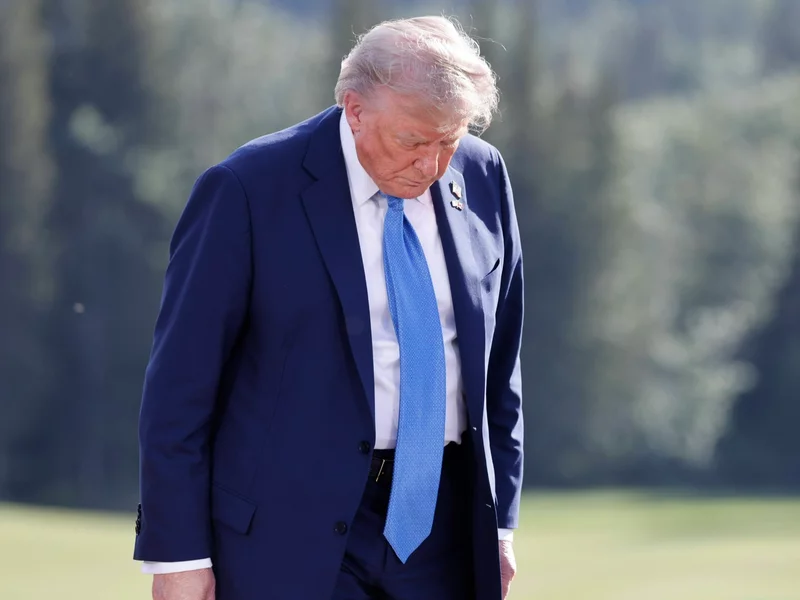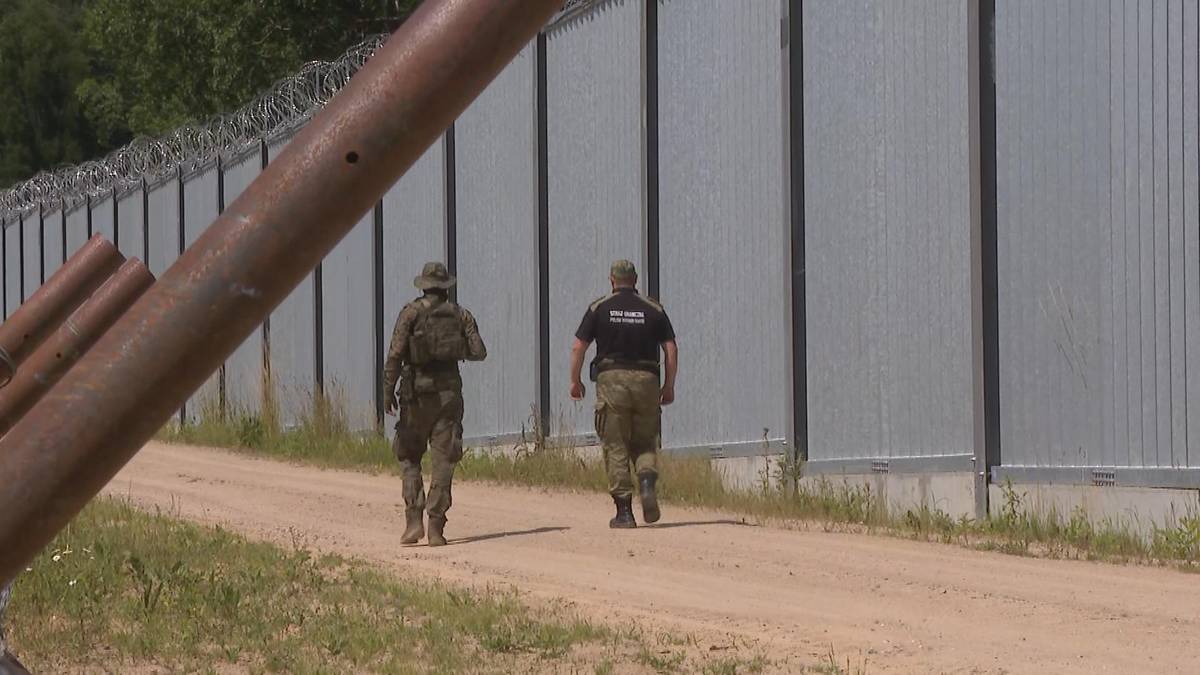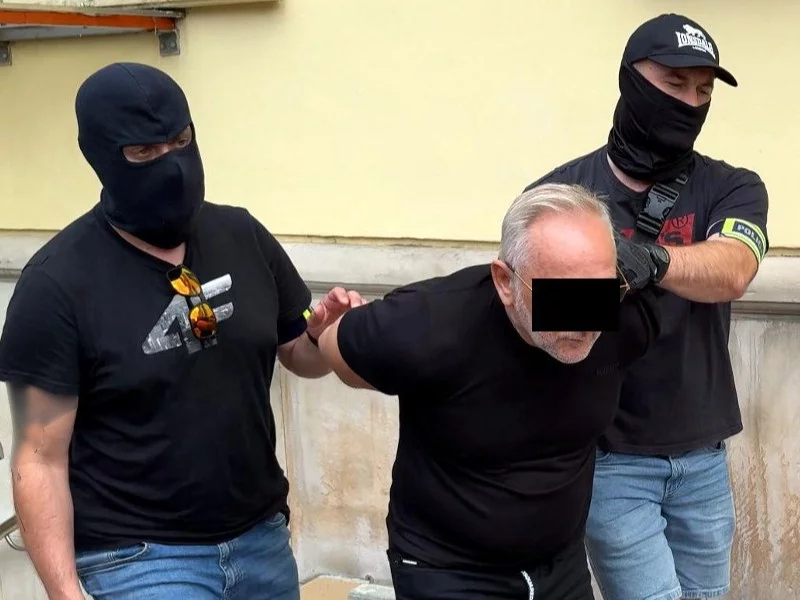Both Prime Minister Donald Tusk and abroad Minister Radosław Sikorski went on the first abroad visits after taking up (re-) their functions to Kiev.
This alone confirms that in spite of this tribal war which the Civic Platform and the Law and Justice drive, in Ukrainian politics, the first 1 drives railways left by predecessors. On December 22, Sikorski said in Kiev that "Ukraine should win this war". This should be seen as rhetorical advancement towards the previously utilized by most mainstream politicians, but worse besides journalists of communicative that Ukraine is winning the war.
However, Sikorski added this with the tromtadradic phrase that Ukraine should become a associate of the European Union at the end of the decade "in its internationally recognised borders". Sikorski was accompanied by Deputy Ministers of Agriculture and Infrastructure who held talks during the visit of the Polish delegation. The Minister of abroad Affairs of Poland yet sees that there are problems in relations with our neighbour, although adding "the issues are complicated by their nature". I would like not to usage this kind of phraseology, which relativizes Kiev's work not so much for dishonesty of traders trading grain on our home market, which should be transited, but for the aggressive diplomatic and information run of disproving Poland for deciding to block these practices. Sikorski praised the military virtues of the Ukrainians, military aid to Ukraine, though he admitted, after a very crucial minute of incision, that “there is an impasse on the front”. This is simply a mild description of the military situation, which is clearly becoming more unfavourable to Kiev.
In his declarations, the head of Polish diplomacy combined the words "if Ukraine wins" and "must win", which is besides a tiny correction of communicative promoted for months, or not to say years of war conflict behind our east border. Visiting Kiev on January 22, Tusk called the Ukrainians "friends". "There is no more credible peace-making policy present than president Zeleński" said while praising the Ukrainian leader that he "came into combat." At the same time, however, the PDT mentioned a gathering with Zelenski, shortly after the latter, on which the Ukrainian president was divorcing about peace, was most likely another flower on the laurque for him, but despite the will (or possibly according to the Tusk intention) it was most likely a summary of the not very successful abroad policy with which Załenski had reached 24 February 2022 and started the Russian invasion. Tusk, unlike the head of his diplomacy, struck the bell of politically harmful phraseology: “You are fighting for the safety of the full free world,” said the Ukrainians, “Here in Ukraine the fates of the free planet decide”, “it is Ukraine that bears on its shoulders the issue of the safety of the full European continent” and fights “for the values that are the foundation of the free world”. I am a strong opponent of this kind of phraseology. Ukrainians fight not for Poland, Europe or the “whole free world”, but for themselves, for Ukraine.
If Poland has any benefits from the attitude of Ukrainians, they are only side benefits, and their purpose. Saying to them all these bombastic slogans, that there is no "free Poland without free Ukraine", is affirming in Ukrainians the belief that Poland owes them everything, with negation of another interests (e.g. the interests of its farmers or the transport sector). In fact, Tusk inactive warmed up these expectations by saying that it is essential to aid “any available means” and “no 1 has doubts in Poland” and that is the position to be taken by all country in the planet and simply all “decent” person. A splendid display of diplomacy towards the full global South, which is the main nonsubjective of preserving and demonstrating that it is not in their interest to advocate for either side of the Russian-Ukrainian War, and specified philipics can only be treated as neocolonial manner of another rich Western state. The Polish Prime Minister besides declared "help in all aspects" to integrate Ukraine into the European Union. Tusk mentioned the Polish business "most cordially welcomed in Ukraine", which is simply a novelty, due to the fact that there was no mention of any particulars in the infosfera, but for the proposal to participate in the construction of the Krakow-Lwów-Revne motorway, and at the same time the Sienkiewicz promise of the Netherlands, in a situation where the war is going against Ukrainians.
The PDT besides mentioned investments in joint arms production and more broadly in companies "enhanced defence capabilities", as far as our country makes sense. He acknowledged that in terms of military support, "certain opportunities are over", he promised to proceed to supply fresh equipment, but, importantly, "we will not avoid commercial rules". Like Sikorski, Tusk promised “good solutions to the grain matter”. He stressed that the case was to be resolved bilaterally, following a Romanian-Ukrainian agreement. It's just that this agreement, in fact, introduces licenses but no longer limits, against which Romanian farmers protest. I don't think that's a good solution... On another crucial level, the continuation: “It is very crucial for us that past does not obscure common interests”, “we will talk about historical matters with common delicacy”. specified words propose to me that we can forget about the exhumations of our murdered in the close future, with specified a policy. Which, of course, will have a negative impact on the prestige and position of our country, but besides impair the moral bushola, the scale of national dignity of our own society. due to the fact that if Rzeczpospolita can't bury people murdered cruelly for only being Poles and being faithful to her, what precisely can she do? I object to the declaration of uncritical support for Ukraine's integration into the European Union.
How characteristic of Polish mainstream politicians that specified declarations are made before detailed calculations have been carried out in Poland, a comprehensive and social debate, how specified a step would affect the life and well-being of Poles, not abstract, without adjectives, but working in peculiar sectors of the economy. For all of us, as citizens utilizing public services financed by public funds, it would be reflected that, after a possible annexation of a state like Ukraine, Poland would become a net contributor to the EU budget. Apart from the already low reality of this scenario, no substance what the rulers in Warsaw want. I do not think that the diplomacy of the Ukrainians' so far-flung matry on this issue and buying them in this way will produce good fruit in the long run.
Krystian Kamiński
The author is simply a associate of the Main Board of the Confederation, he was a associate of the Sejm of the Republic of Poland for the 9th term
photo of the ‘X’ profile of the president of Ukraine
For: profile fb of the author (with his permission)
Think Poland, No. 9-10 (25.02-3.03.2024)









